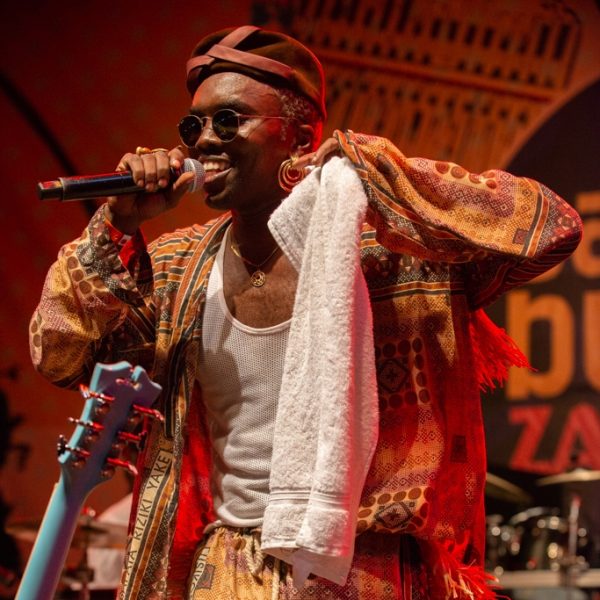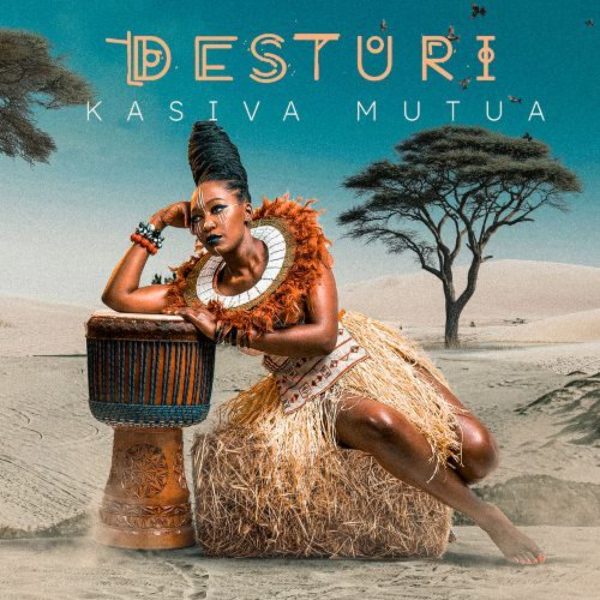You can be excused for not knowing that there is a place called Mayotte, and even if you have heard of it, you can be excused for not knowing anything about it. But Zily (Amida Zily) is on a mission to change all that.
Mayotte is a French territory located in the Indian Ocean almost exactly between Mozambique (on the African continent) and the island of Madagascar. It is actually a string of small islands, surrounded by coral reefs, the largest island is simply known as “La Grande-Terre,” with a total population of just over 320,000 on the islands. The natives use two indigenous languages, and so while French is the official language of Mayotte, it is really everyone’s second language.
Zily began singing at the age of seven, learning traditional music from her grandmother at, and later mentored by a former singer, Mantouria, who inspired her greatly. At 16, after a radio appearance, she became well known on the islands and performed semi-professionally at weddings, which are very ritualized and important ceremonies on Mayotte, with specific songs to be sung during them. After almost a decade of just doing that, she joined the group Fleur d’Ylang in 2009 and gained even more popularity singing traditional music both on the islands and in France.
Then, in 2021, she made the decision to depart from the traditional scene and released “Tsika,” a more modern track, which has garnered over three-million views, and proved she could succeed on a bigger platform.
At the time, she told a local newspaper, “I'm targeting a young audience.... I'm trying to change register but be careful I'm not completely stopping traditional songs.... Today, if we can listen to songs from all these countries in Mayotte, then I think that [these countries] can listen to ours and discover the Mahorese language and our culture.”
Moving forward, she founded her own record label and released an EP in 2022 which then led to her starting to hit the African festival scene and gaining the momentum to take her music to the world. And this desire to spread the music of Mayotte to the world has led her to a showcase at this year's WOMEX conference.
We sat down with Zily the day after her showcase, which killed with people raving about it afterwards. Her manager, Mathieu Lhoste acted as French translator. We would also note that in addition to her musical career, Zily owns her own clothing store on Mayotte and is currently raising six children. The following has been edited for both clarity and length.
Ron Deutsch: What a great show last night. How was it for you?
Zily: I really loved my show yesterday because I could see people were very, very happy, dancing, and good vibes. And I would say much love, which is very important for me.
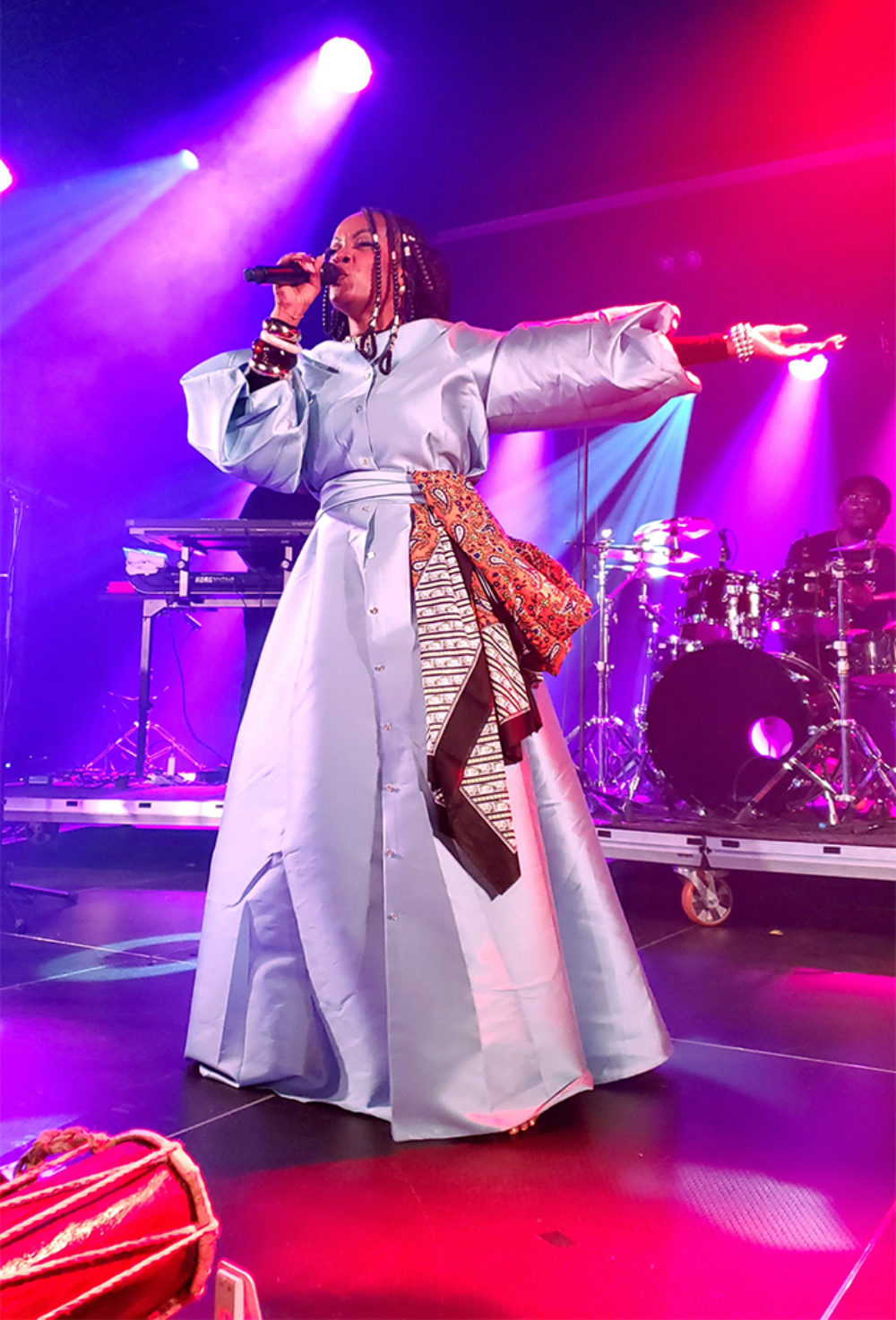
So when did you decide to start singing and when did you decide that was something you wanted to do professionally?
I started singing at seven years old in Muslim schools, in a traditional way. But then I started to feel comfortable in 2021, at the age of 37, to find a way to go professional. I didn't think for so long to be professional, because in Mayotte no women are professional singers, only men. I realized that if I don't try to do it, who will? So I am the first woman now to go this direction and now the first to perform internationally from Mayotte.
Are you getting pushback from the men in Mayotte, or are you feeling accepted? Does it feel like times are changing?
I'm getting both. But that gives me strength to fight for a women's right. And I tell myself it's not a big deal, so it allows me to continue. But because I'm Muslim, it's not really accepted in the religion. And because I am a woman there are many people who disagree with me regarding religion about this – but there are also many, even some religious people who support me because I give people love. I sing love and transmit love and good vibes. But I never sing anything against my Muslim values.
You spent many years just singing at weddings and local events, but then you jointed Fleur d’Ylang. Tell me something about this group.
I joined when I was 25. It's what we would call mahorais music, “acoustic folklore” singing accompanied with bamboo instruments. At that time, there were very few women bands doing these traditional songs. It was traditionally music made by Mayotte women, but it had been abandoned, though there were a few other women's bands still playing it at the time. That’s what I wanted to play, so I found this band to take ownership of this music again and revive it. And it was a huge success. Thanks to these efforts, we brought back truly traditional songs, and the young people took up the torch. Nowadays there are more than 60 bands like that.
When you say it was abandoned, what do you mean?
As I was saying, traditionally this was women's music. But then men came in with electric instruments and modernized it. These men created bands and didn't want to involve women. This was round 1995. And by 2000, they turned it into party music. They transformed it, using the original acoustic melodies, but only for men to play.
Is this the music you learned from your grandmother?
My grandmother taught me debaa music, which is more Muslim religious music. But it was through a woman, Mantouria, one of the great singers of mbiwi, who taught and inspired me towards the traditional music.
So in Fleur d'Ylang you were singing both mbiwi and debaa or only one of them?
When I sing traditional material, I sing either debaa or mbiwi, but in my own modern music I do, I mix them.
So at the concert last night, for example, how would I differentiate the debaa or mbiwi sounds?
Dabaa has an Arabic vibrato, whereas mbiwi is more melodic without the vibrato and feels more African.
And that musical mix is kind of a perfect way to understand the Mayotte people, because you are this mix of African and Arabic.
Yes. Exactly.
So tell me more about the Mayotte people.
I would say they are people with beautiful energy, beautiful souls. The people are very welcoming and very, very sincere. And then, you should know that Mayotte women come first. It is a matriarchal culture and the women are much more valued – women take on a lot of responsibility. And the women are very proud, very beautiful, and very elegant. They are not afraid, and have a lot of boldness. And Mayotte is also about the beautiful scenery, and sharing, living together, because it's all so small. People live life to the fullest.
But at the same time, women weren't allowed to be professional musicians?
While it is a matriarchal society culturally and socially, women are not involved in politics. Only the men. Now, I would say thanks to me and other women of my generation, many young women are starting to make modern music, and they can dream about becoming singers. But there's no professional music industry in Mayotte.
It was very difficult for me. We have an expression in our native language: 'When you see a wave, you see an exit.' Before I created my own label, I started making and selling these customized wedding songs. I launched them via friends who invited me and who ordered these songs. It's a hundred year old tradition. So that was how I raised money to make a home studio which allowed me to finance my international projects. But I also see it as I'm cutting a path for other Mayotte women to follow.
So what was the path here to WOMEX?
Well, it's thanks to Mathieu, who is my childhood friend. We first met in the fifth grade, but then later we lost touch. He had gone to study in France. But when were now grown, we reconnected. I was very happy to see him. Then one day he came to my clothing store – I have a store and sell clothes – and I asked him: “Mathieu, do you want to be my manager? Because I want to launch my career. Neither of us knew about the music business, but we learned together. And we grew up again, in the music industry, together. In 2021, we released by first EP and that took us to Visa for Music Festival in Morocco, which led to more and more music festivals around Africa.
And do you have a full album now, or only an EP?
I have a lot of albums of the traditional music, but for now, only the EP and some singles of the modern music. But we are looking to release a full album we recorded in France of the modern music next spring.
And all the music is on your own label, Yeka?
Actually two labels, Yeka is for the local music, the other is for the modern, international music.
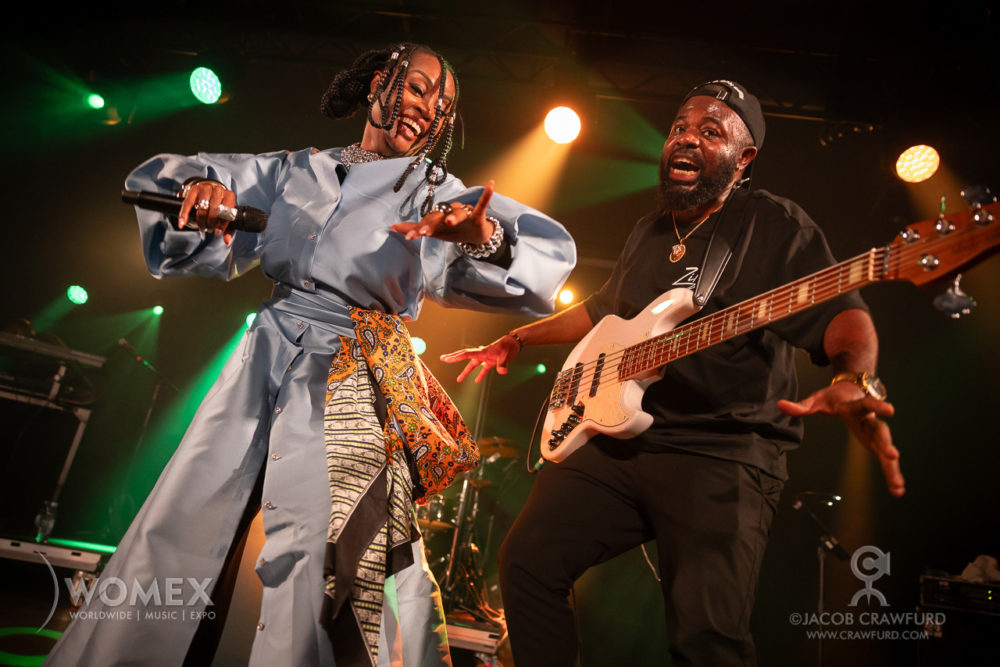
So what's next?
Well, this is just the beginning of the story. I want to be on international stages, and not just to be on these stages, but to represent the Mayotte people, to share our music and culture. My hope is that one day everyone will know where is Mayotte. I want to be a musical ambassador of Mayotte. Above all, it's a question of – how do you say it? – It's very personal for me.
Is there anything that you want to talk about that we haven't?
If I had a message, I would tell you that the women of Mayotte are there and we are ready to discover the world. Also, we have a lot of trouble these days in the world. Personal troubles, but also global troubles. And always, music has been a universal language. And for me, in my opinion, music is a means. It's not the goal. It's a means to transmit love, peace, respect, and unity. For everyone, the whole world. Music is one of the only ways and it's really this power of music that I want to show this way to solve the problems.
We can only hope. Thank you.
Thank you.
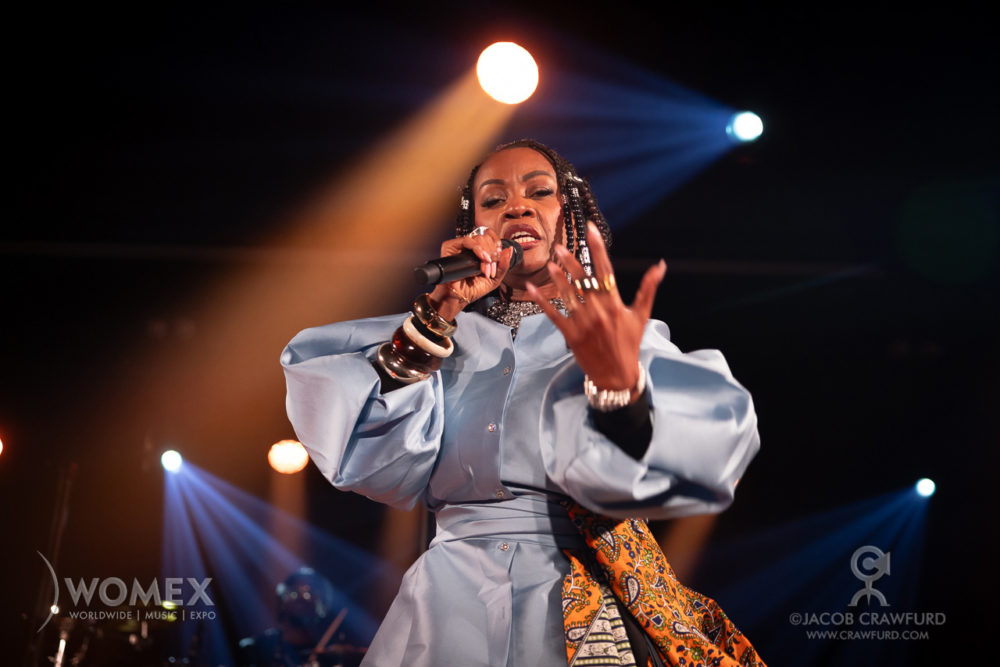
Related Audio Programs
